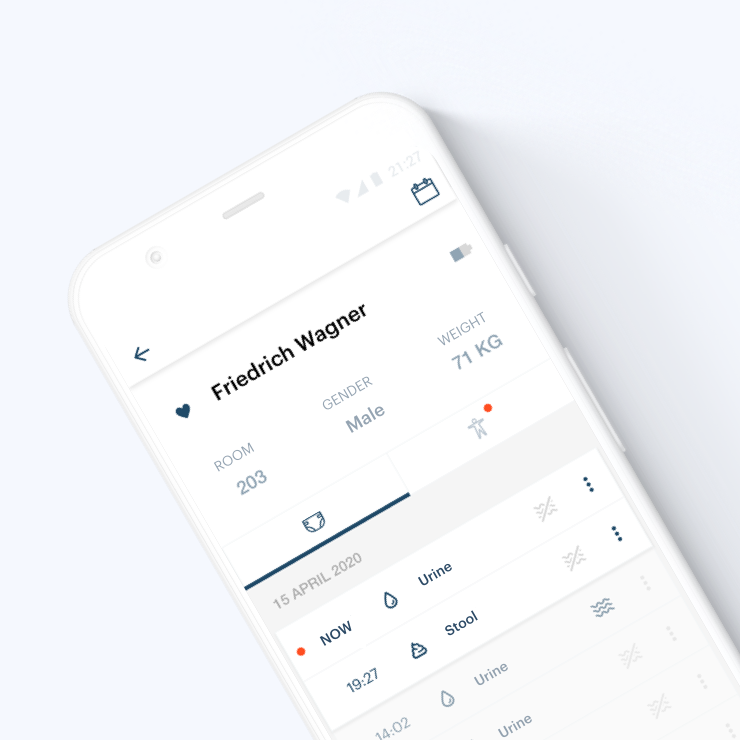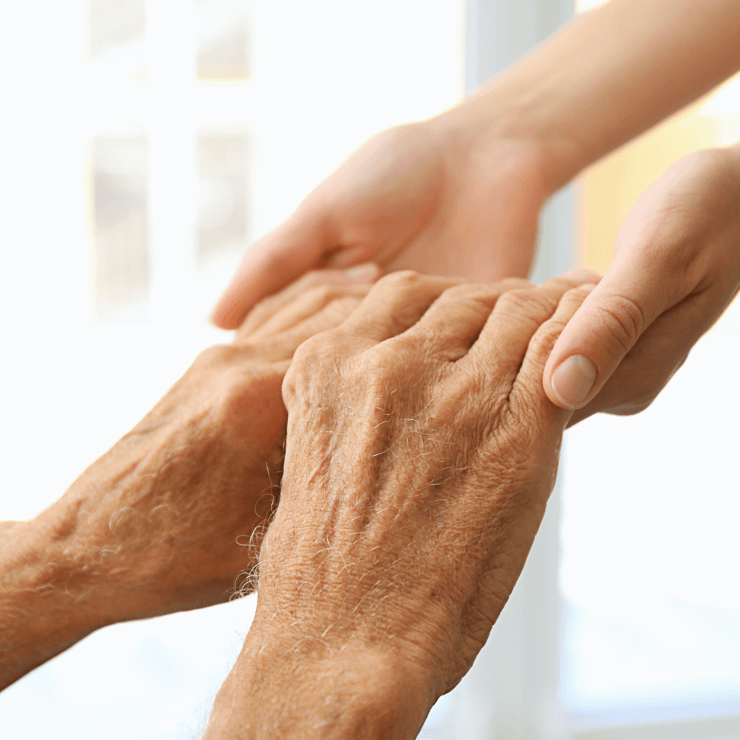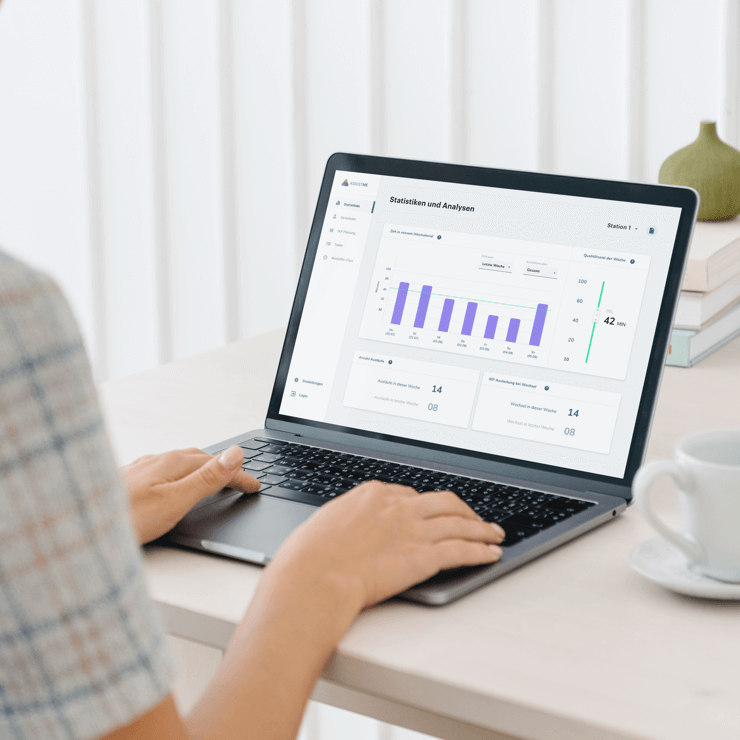Quality management
in elderly care


Quality management
in elderly care
Maintaining quality of care and remaining profitable –
how does that work?
The technology of young generations helps older generations
Make work easier for care staff, increase quality for residents
The daily routine of care staff is exhausting and can be frustrating at times – the opportunities to really address the needs and specific situation of each individual resident are very limited due to tight schedules.
The AssistMe app is an example of how digital quality management in elderly care can reduce workload for staff while increasing quality of care for the residents.
WITHOUT ASSISTME
05:00 |
Routine check |
05:15 |
Incontinence product needs changing |
06:00 |
Incontinence product leaks |
06:30 |
Shift change |
07:30 |
Bed linen changed |
07:40 |
Basic care performed |
2h 15 min
incontinence product in need of
changing and poor sleep
10 min
of extra cleaning
WITH ASSISTME
05:00 |
Routine check |
| 05:15 | App sends notification of incontinence product in need of changing |
05:30 |
Incontinence product changed |
06:30 |
Shift change |
07:40 |
Basic care performed |
15 min
incontinence product in need of changing followed by 2 hours of restful sleep
No
extra cleaning
Maintaining quality of care through
smart quality management

Innovative incontinence management
Until now, the goal of incontinence management has always been to generate the most efficient plans possible. While this is good for profitability in the short term, the quality of care for the residents suffers. This is mainly because such a system would have to be suitable for all incontinent residents in the facility. It is nearly impossible to address the needs of each individual.
An innovative incontinence care system would certainly be able to achieve a balance between individual care and efficiency. This means that a high percentage of the time would be used where it is actually needed the most. This can be done by means of a comprehensive networked solution that “sees” when an incontinence product has to be changed, thereby making time-consuming routine checks unnecessary.

Innovative incontinence management
Until now, the goal of incontinence management has always been to generate the most efficient plans possible. While this is good for profitability in the short term, the quality of care for the residents suffers. This is mainly because such a system would have to be suitable for all incontinent residents in the facility. It is nearly impossible to address the needs of each individual.
An innovative incontinence care system would certainly be able to achieve a balance between individual care and efficiency. This means that a high percentage of the time would be used where it is actually needed the most. This can be done by means of a comprehensive networked solution that “sees” when an incontinence product has to be changed, thereby making time-consuming routine checks unnecessary.

Better care for immobile residents
Routine checks for immobile people also has its limits. Although they allow a certain degree of predictability, the actual effectiveness of the measures cannot be ensured.
A system that detects the movements of residents and reminds care staff of preventive measures makes their work easier and reduces unnecessary repositioning. This also means that the resident is disturbed less when resting. If a resident in need of support leaves their bed at night to go to the toilet, a notification can be sent to the care staff so that the person is safely accompanied to the bathroom.

Dementia management – managing wandering behavior without too much restriction
Protecting residents with a tendency to wander without restricting their freedom is a difficult balancing act. Due to the existing staffing levels, continuous supervision is usually not possible. If a person with dementia cannot be readily found, this causes disruption in the daily routine and additional work for the care staff.
Automated location detection is a good way to make work easier for care staff and not subject residents with a tendency to wander to undue stress. It is important to know that this location detection is not “centimeter-precise” surveillance but rather monitoring between secure and non-secure zones. This means less intrusion in the personal space of the residents while still providing increased safety.

More time for individual contact:
Documentation with minimum effort
From bowel movements to supported body positioning – many steps in the daily care routine have to be documented manually. This additional work, which many caregivers find bothersome, creates further stress and is also highly prone to errors.
Standard documentation tasks in particular can be easily handled or at least made easier by modern IT solutions. Automated detection of a change of incontinence product or supported repositioning is possible and can be documented without paperwork.
Additional documentation tasks that still require manual assessment by a caregiver can be entered on the spot on a smartphone or tablet instead of having to rely on a computer as was previously the case.
Quality assurance in the nursing home via app
AssistMe can therefore help care facilities
realize economic gains while maintaining
quality of care:
- Innovative incontinence management
- Needs-based care for immobile residents
- Management of wandering behavior
- Automated documentation




